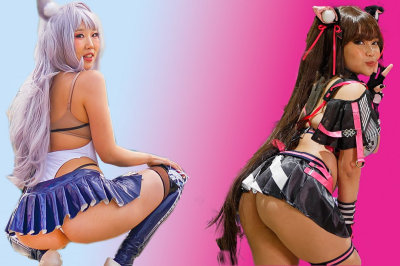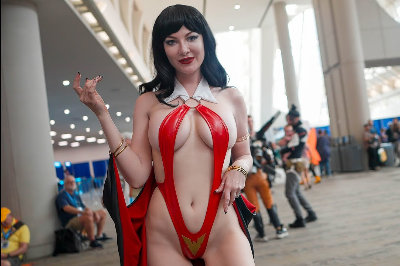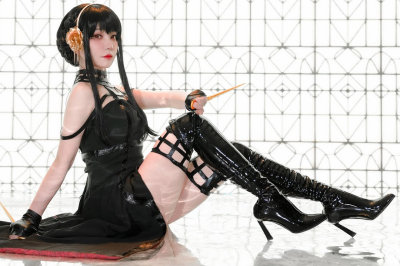THE GUARDIAN - Q&A with Ashton Kutcher
Movie Interview by Clyde Baehr
Ashton Kutcher arrives looking very smart. Almost wedding smart. He's dressed in a grey suit with waistcoat and a burgundy tie. He probably even has a pocket watch. It is clear that Mr Kutcher is attempting to distance himself from his MTV "Punked" persona, reaching out for a bigger audience. And on the strength of his performance in US Coast Guard flick THE GUARDIAN he might just do it.
Is this the fittest you've ever had to be for a movie?
It's the fittest I've ever been in my life! I feel like when your doing a film the idea is that you do all the work before you get there, so I trained for about eight months. I started training before I knew I had the movie, which involved swimming a lot. I didn't like water at all before this - I didn't even like taking a bath! I don't mind drinking a glass of water.
Did your training involve a special diet?
Yeah, I lived on chicken, broccoli and brown rice for the last three months. I went to visit the training school and these guys were built in a way I'd never even thought about being built. I said to my trainer "I don't look like one of them. I need to look like one of them." and he said "Well here's what you're gonna do." So it was chicken, broccoli and brown rice.
Is there a danger when saving lives on screen of believing you can do it for real?
Yes there is that danger of believing too much, when you're in the moment there isn't. Somebody said "As an actor you never want to get caught acting," and I'm trying my best not to get caught from here on out. But I was on holiday, I went to Turkey with a bunch of English friends and there was this one older gentleman we called the 'Dicky Doc'. He had been drinking pretty much all day and he decided to go for a swim. He got about 10 feet from the boat and started to go under so I pulled him back to the boat, which wasn't too difficult. Before doing the film I wouldn't have been so quick to get in the water.
Co-star Kevin Costner had previously worked with water on WATERWORLD. Did he give you any advise?
I always feel like you're not growing as a person unless you're doing something that makes you a little uncomfortable. And I want to grow as a person. So when it came time I was training and training for the movie, we were about two months away and the trainer said, "I haven't heard from Kevin." I said, "He's not swimming yet?" I started to think about Dustin Hoffman doing MARATHON MAN with Laurence Olivier, and Dustin running around the track until he passes out and Olivier was standing over him and says "It's called acting my boy." So the whole movie I kept waiting for Kevin to come on to me and just go, "It's called acting my boy," but it never happened. He got in decent shape for the film, and I learned a lot from him, not necessarily about being in the water but about being a man, and about relating with people and being a generous person and a generous actor.
How did you feel to be working with Kevin?
I grew up in Iowa and the movie FIELD OF DREAMS was filmed there, and so I grew up with a cornfield in my back yard, and I always thought a baseball player was going to walk out of it. The mantra "If you build it they will come" certainly becomes a way of life. I'm very fortunate to have met a lot of my acting heroes, those people that you get to sit in little dark rooms and watch. They really become your heroes, and now Kevin is my friend. I admire his work. You could probably name on one, maybe two hands, the number of people who've been able to have a successful career for as long as Kevin. You look up to those people when you're trying to do the same.
Have you kept up your healthy regime?
No. Well I gave up smoking. I never gave up the drinking. It's hard to smoke and swim at the same time. You'd get to the edge of the pool and all you'd be wanting is a cigarette when all you actually really want is oxygen. So I traded the smoke for the oxygen. I read a book by an author named Allen Carr, 'The Easy Way To Stop Smoking', and the great thing about the book is that you get to smoke while you're reading it. You get to page five and it says something like "Light one up now," and you say "Absolutely!" And you get to the end of the book and the last page says "Smoke your last cigarette," you do, and I did and I haven't smoked since. That's one thing that I haven't returned to. However, I took a three-month break from working out when I finished the movie. I couldn't motivate myself to get into the gym or swim.
Your wife Demi Moore went to boot camp for GI JANE. Did she give you tips on how to survive training?
Yes she did. She said, "Just go all out". She told me when she was there she just did everything and by the time they started shooting they really respected her for giving everything she had. Then they supported and helped her. That was great advice because I went in on the first day of boot camp and said, "Alright keep up with me because I'm going all out. "It created unity between myself and the other guys and they took it seriously, and the movie benefited. And the Coast Guard guys, man, they were there for me. Any question I had, anything I needed to know, they had my back.
How did you feel when you discovered some of the guys at boot camp were Olympic swimmers?
Man, I really thought I was there. I went through the whole Coast Guard manual, and made sure I could do everything that those guys do in order to graduate. I got to Louisiana and Andy said "Well that's great, so you really think you're ready?" And I was like "Yeah, I'm ready. I'm going to blow these guys away". He said "OK," and showed me who the other guys are, and he throws down a picture of Mark Gangloff who won a gold medal in Athens and I was like "You have got to be kidding me!" There was I thinking I was really going to win, and they were faster than me. A lot faster. But once we got the gear on and started doing the tows and stuff they slowed down a little bit because it's a different kind of swimming when you're dragging somebody else through the water. Those guys can make it across the pool in eight strokes, but once you get the gear on it's like having a big parachute, a big net, so you don't have the glide, and the form becomes less essential.
Filming in the water is dangerous. Did you have any scares?
Yeah, when you realise what could happen. I kind of put that out of my mind while I was doing it. I think about hanging eighty feet above concrete by a thin little wire on a little winch controlled by some guy. If you think about what could happen...I remember hanging from there and Kevin said "Maybe you guys could put a little fall pad down there in case," but from where we were hanging it looked tiny so I'm thinking "How we were going to hit that if we fall? "So there were definitely some dangerous situations.
How long did you hold your breath underwater for the training scene? That looked uncomfortable.
Yeah, that really pissed me off .I was under the water for about three-and-a-half minutes, holding my breathe, after swimming the length of the pool. But when they cut it in the movie it was about ten seconds! So what did I do that for?
Do you have a newfound respect for the coastguard?
Going into the film I didn't know anything about them. I read the script three years ago so (hurricane) Katrina hadn't happened. When Katrina happened it was a huge catastrophe, and these guys really became the heroes. Anybody who is willing to sacrifice their life to save the life of a complete stranger, you have to respect. And if you don't you're a fool. That's what these guys do on a daily basis.
How is Kevin Costner perceived by younger actors?
DANCES WITH WOLVES is one film he won an Oscar for as a director. It won seven Oscars. If you're a young actor and you don't respect that I think you're ignorant in some ways. Directing yourself is a monumental task. Just to self edit as an actor, you work for some directors who don't give you a lot of feedback so you have to do that. That's a difficult thing to do. Kevin is always good in his movies. Occasionally we have the opportunity to be great and he's been great when those opportunities have come.
How was it working with a co-star who is also a director?
It's helpful. Andy (director Andrew Davis) came out of the cinematography world, so he has a really amazing visual sense, how the scene should look and how the camera should move. I remember one time we were shooting a scene in his office where I had my emotional revelation in the movie. We'd done some 20 odd takes of different angles, and I felt like I'd done it authentically about 25 times, and we were moving on to take number 26. The way Andy shoots. He shoots a lot of film from a lot of different angles. I just wasn't feeling what I wanted to feel. I went to Kevin and I said "OK, this is why I'm doing this movie with you, now you're going to help me". He said "Alright". I said that the last take was completely off and asked how I could get it back. He said the only difference between me and him was that he was more relaxed in what he was doing, he's a little bit more confident in what he was doing because he'd been doing it longer. He said, "Just believe you don't have to do anything and then you'll do everything." That's all it took.
Are co-stars suspicious of you because of 'Punk'd'
I don't guarantee immunity. When I'm working with someone I'm not going to break that trust that you have to have. You have to be able to look across to the person that you're working with and trust them, and trust that they're going to give it everything they've got. I can't break that trust in my work. So if they do I hope that they know while we're working together that nothing will happen. When you're hanging from the wire things go wrong you don't want the guy going "Are you Punking me?" "No, you're really going to die!". You don't want to get caught in that situation, so I would never do that."
From working predominantly in romantic comedy you have recently branched out to a range of other genres. Was this a conscious decision?
As an actor, when you're first starting off, you don't necessarily get to choose that much. You kind of do what you're given. You have limited choices, and as my choices have grown I've been able to tell the stories that I like to tell, about people that I respect, or a story that has a message that I believe in. Those are the kind of films I want to make, and whether that's a comedy or an action film or a drama, or a horror film or a western, whatever it is, those are the kind of movies I want to make.



